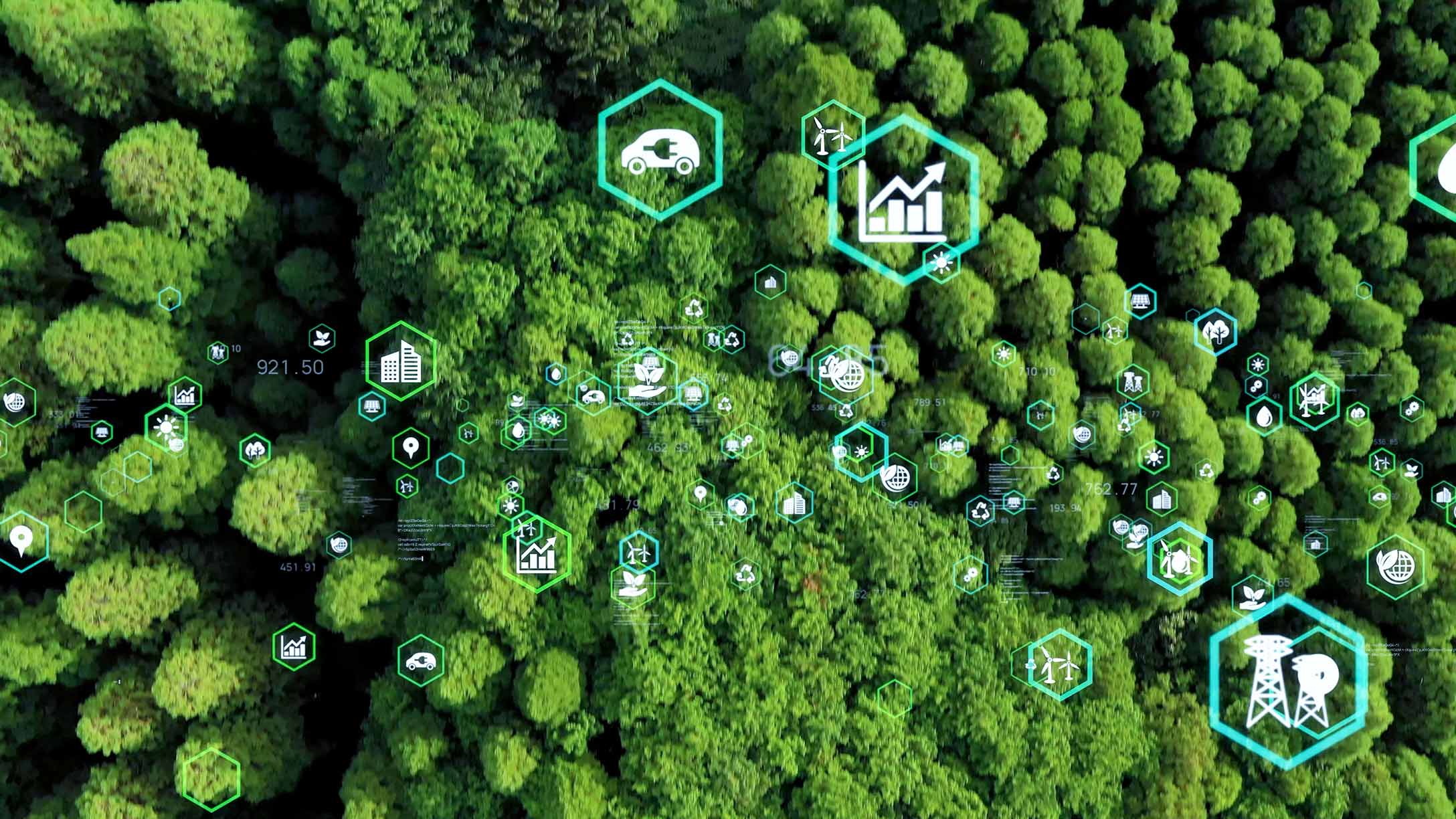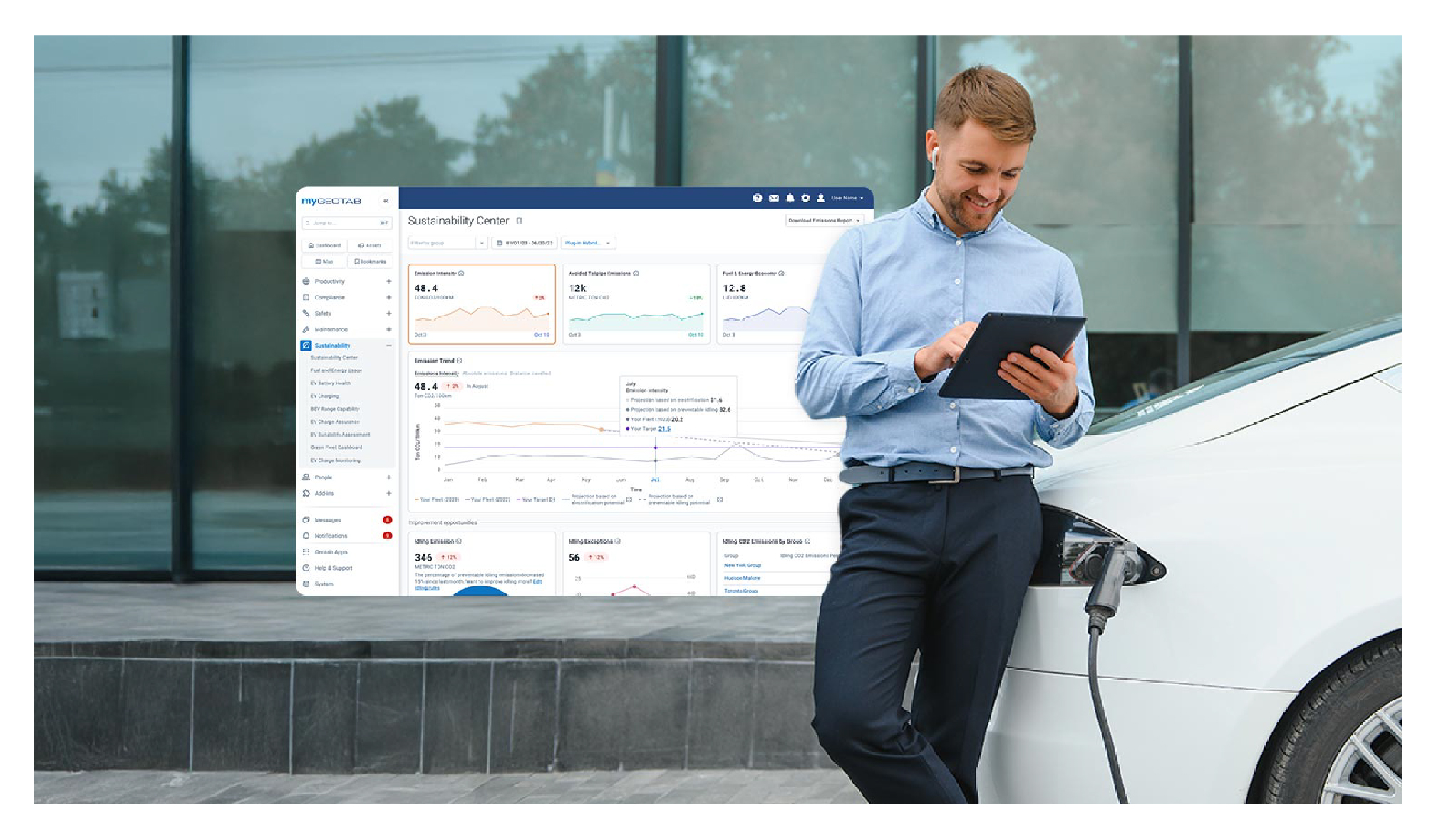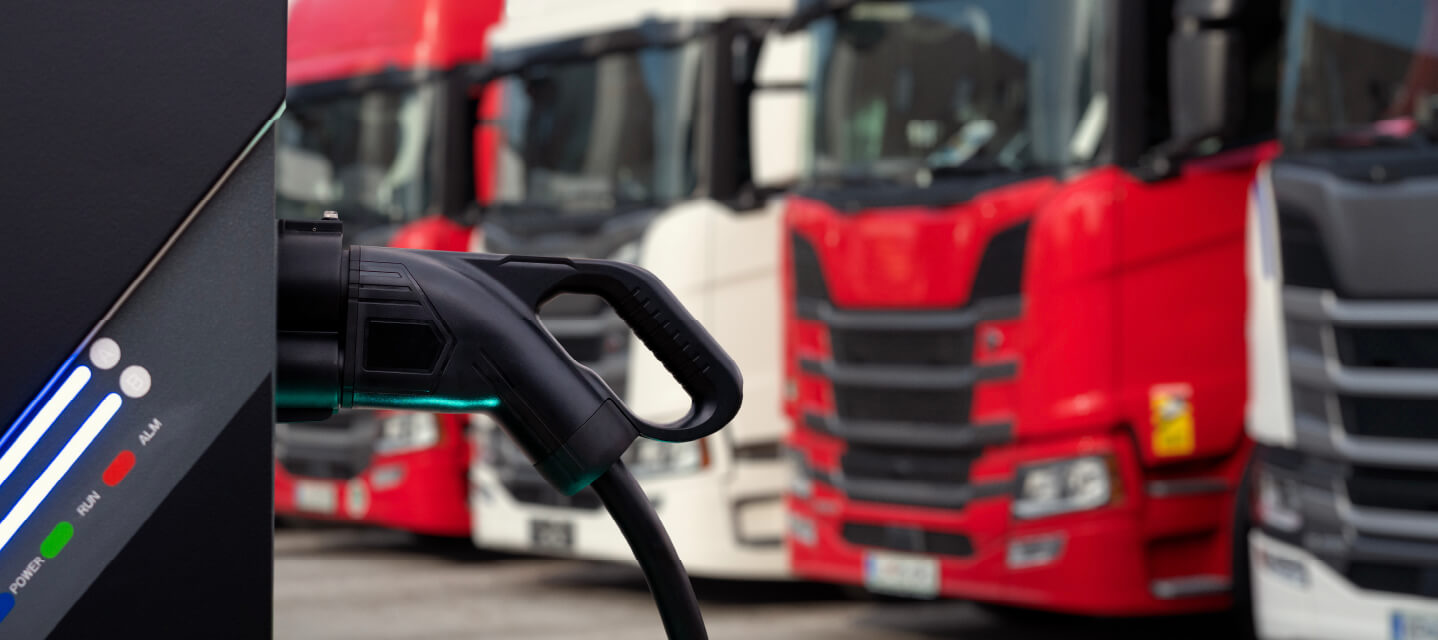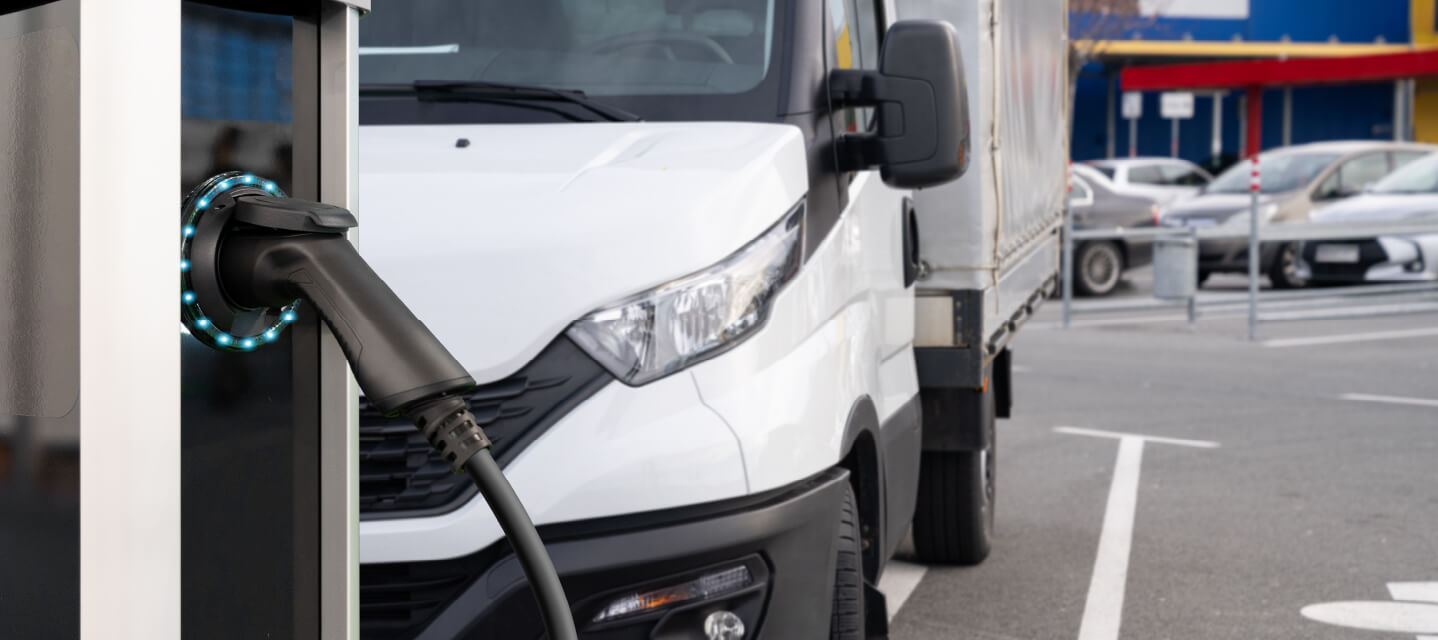Sustainable transportation insights for businesses from COP26
Geotab’s participation in the Sustainable Innovation Forum (SIF) during COP26 focused on collaborative partnerships for global climate action.

Geotab had the opportunity to be a part of the Sustainable Innovation Forum (SIF) during COP26. SIF unites heads of state and multilaterals, business leaders, investors and non-profit organizations to join the United Nations’ climate change conversation and work together to achieve net zero emissions globally.
Adaptation and innovation were key themes at COP26 in Glasgow. Sustainable transportation emerged as a critical path going forward for climate change. As sustainability is one of the main pillars of innovation at Geotab, it was essential for the company to join in the most important climate change meeting of the generation.
About the COP26 climate summit
For over three decades, the United Nations (UN) has brought together leaders from across the globe to discuss priority issues such as climate change. COP stands for “Conference of the Parties” and this year marked the 26th annual summit.
The goal of this conference was to talk about the biggest threat that is currently facing the planet: the climate crisis. Geotab along with hundreds of other leaders and companies took the stage at the SIF to discuss the climate crisis and how to work together for a better future.
The importance of the conference stems from the goal of working together to protect the environment and the future of the human race. The UN's latest IPCC report discusses the dangers of climate change and how it is widespread and quickly intensifying. It also highlights the importance and urgency of strong cuts in greenhouse gas emissions.
The COP26 agenda covered:
- Mitigation and adaptation strategies for reducing greenhouse gas emissions
- Increasing research and development into renewable energy sources
- Ensuring indigenous representatives have the opportunity to play an important role in developing sustainable practices
- Finding ways to monitor progress
- Increasing transparency

A discussion between leaders at the Sustainable Innovation Forum.
Accelerate the journey to sustainable transportation with telematics
Neil Cawse, CEO at Geotab and Edward Kulperger, Senior Vice President, EMEA spoke at the SIF about insights and lessons learned in order to drive sustainability efforts forward.
Neil Cawse and Neil Emery, Director, On Road at Amazon discussed how the industry of transportation affects sustainability goals. “Geotab is in a unique position to understand how vehicles are being used to make a difference to how global fleets electrify, how they are being more sustainable, and being able to measure and provide services to them,” said Cawse.
Geotab understands its responsibility to play a positive role in the environment and we are moving towards a sustainable future. To do this, Geotab has signed The Climate Pledge with over 200 companies to meet the target to reach net zero emissions by 2040.

Neil Cawse, CEO at Geotab and Neil Emery, Director, On Road at Amazon speak about sustainability in a panel discussion at SIF.
Emery explained that transportation is a major component of business operations at Amazon and their goal is to make shipments more sustainable. Emery says, “We are constantly looking for the range of an electric vehicle to increase. One of the ways we use Geotab is to gain those data insights, not just on the internal combustion fleet, but also on our electric fleet. The data we get from Geotab means that less than 0.01% of the thousand electric vehicle routes we send out daily experience battery drains.”
Turn digital technology innovation into climate action
Kulperger underlined the importance of sustainability to transportation companies today for business success. “Sustainable transportation is very much in demand. As our cities continue to evolve, we need to ensure we transition to electric vehicles to keep up with our sustainability efforts,” said Kulperger.
Optimizing and leveraging data through the movement of goods and people in our community is also key to driving forward sustainability efforts. To kickstart this effort, Geotab has issued a call to action for fleets to join the Air Quality project in order to both measure and manage poor air quality in the environment.
Use data to inform sustainable business decisions and measure the impact
During the SIF, Neil Cawse joined Dr. Sally Eaves, a speaker, senior policy advisor and a leader focused on using technology for good, on the podcast, Tomorrow’s Tech Today. Listen to the podcast to learn about using data to drive decisions, the importance of measurement and how Geotab is focused on helping fight climate change.
Here are a few key takeaways:
Data can drive sustainable decision making — While one of Geotab’s pillars is sustainability, the other pillars such as productivity also help drive forward sustainability efforts. Everything is connected, and while some may not realize it, a driver becoming more productive is actually helping the overall fleet become more green as well.
For example, with the help of a telematics solution and features such as behavior coaching and routing and dispatching, a driver can become more efficient and spend less time on the road. Driving less distances due to an increase in productivity and better routes will be beneficial for the environment.
Measuring impact is vital — Daily actions at work or at home impact the environment each day. It is important to determine what those actions are, and take steps towards improving. “Let’s start by measuring what we are doing, how we are employing our vehicles, what they do, how they operate, where we actually burn carbon and then use that data to make an informed decision,” said Cawse during the podcast. He discussed the importance of creating a feedback loop and having a concrete plan and vision to fight climate change.
Additionally, Eaves and Cawse discussed that by using telematics in any industry, a data driven approach can be applied to conducting business. Analyzing the insights behind what role each vehicle plays in a fleet can help companies decide whether they need to be converted into EVs, or how they can be better managed.
Sustainability should be a priority for every company — The time for change is now. It is important for companies to take accountability and commit to taking sustainability efforts more seriously. Geotab is heavily invested in researching and understanding the company's impact on the environment. Geotab’s sustainability report outlines our sustainability priorities and future targets. Cawse discussed that creating a sustainability report is not to commend ourselves for the efforts, but to uncover gaps and learn what further steps can be taken.

Dr. Sally Eaves’ post on Twitter speaking about Geotab’s commitment to negating climate change.
Geotab’s commitment to sustainability
Collaboration has always been one of the key goals of United Nation conferences. The UN stands behind working together and believes that the more global leaders that attend and participate in discussions regarding climate change, the more powerful the outcome can be.
Geotab stands behind this message and along with meeting our own personal goals, we are working together with our partners, customers and suppliers to conserve resources, improve energy efficiency and achieve climate change goals.
.png)
Tips on fleet sustainability best practices including recycling, emissions reduction and car-sharing.
Technology and data are crucial to measuring performance and making an impact – and Geotab is committed to making a difference. Understanding the urgency of climate action, Geotab’s target is to achieve a 50% reduction in emissions by 2030 and becoming fully carbon neutral by 2040.
To learn more about Geotab’s commitment to a decarbonized and thriving future, read our Sustainability Report.
Subscribe to get industry tips and insights
The Geotab Team write about company news.
Table of Contents
Subscribe to get industry tips and insights
Related posts
.jpg)

Geotab’s new fleet Sustainability Center simplifies fuel and emissions reduction
March 3, 2025
3 minute read

How long do electric car batteries last? What analyzing 10,000 EVs tells us…
January 20, 2025
9 minute read

What is fleet electrification? (+ How to build a sustainable strategy)
January 13, 2025
4 minute read
.jpg)
